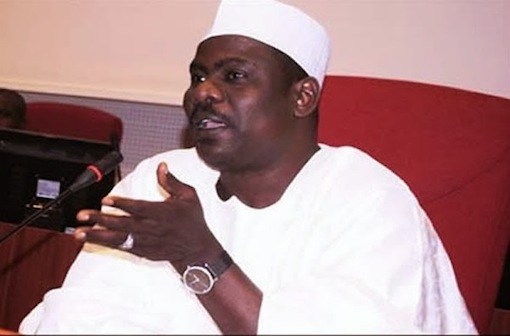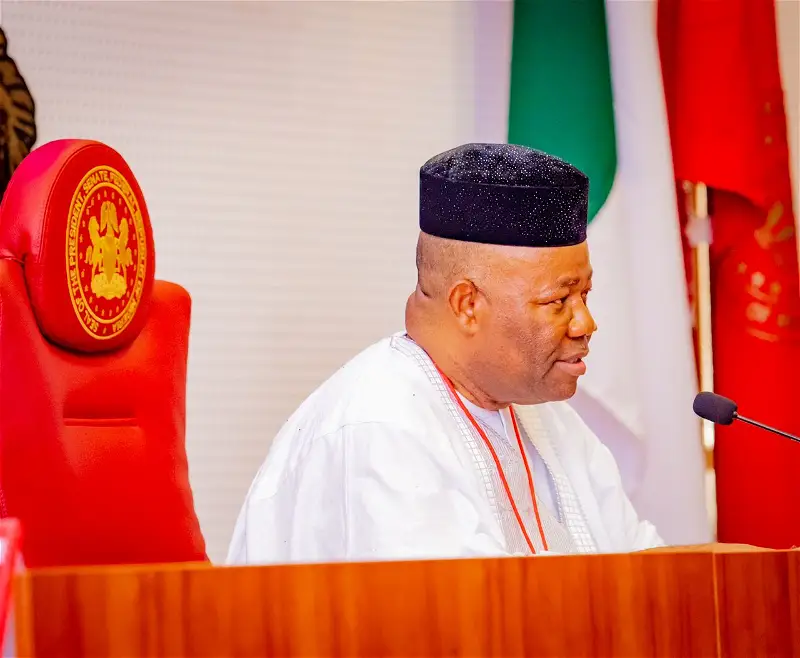FG gives hope on easing fuel scarcity except price reduction
*But Dangote says petrol market strictly regulated *...product price determination not his but govt’s responsibility

By BASHIR ADEFAKA
Although the month-long fuel scarcity ravaging the country will be clear soon, not so of determining whether the continued price increase will be reduced, as the Federal Government says it has no control of product prices.

The Nigeria’s Minister of State for Petroleum Resources (Oil), Senator Heineken Lokpobiri, revealed this on Thursday September 5, 2024, while briefing State House correspondents in Abuja after a meeting with Vice President Kashim Shettima, a statement that contradicted Alhaji Aliko Dangote’s submission that determining his own petrol price is the business of relevant government authorities under the current crude in naira arrangement.
READ ALSO: Determining petrol price not our duty but responsibility of govt – Dangote
Lokpobiri had been joined by the Group Managing Director of the Nigerian National Petroleum Company Limited (NNPCL), Mele Kyari, during the meeting Shettima, which was believed to be about issues surrounding the hardship caused by petrol pricing in the country.
Mallam Nuhu Ribadu, National Security Adviser, also attended the meeting which is not unconnected with the recent hike in the price of Premium Motor Spirit (PMS) and the backlash that has trailed the development.
Lokpobiri said the meeting was at the instance of President Bola Tinubu, who he said was concerned about the hardship being faced by the masses.
He said the government was not fixing prices and the prices would stabilize as soon as the product was made available
The minister urged Nigerians to shun panic buying, saying it is expected that there will be availability of petrol by the weekend.
He said: “What is important is that products are available in the country, and we believe that between now and the weekend, there will be availability of products across the length and breadth of the country.
“The price could be high in some areas, much higher in some other locations, and much more higher in other areas.
“But we believe that by the time there is availability of products across the country, the price itself will stabilize.
“But what is important is that the government is not fixing prices. This sector is deregulated. And we believe that with the availability of products, the price will find its level. And this is important for Nigeria to know.
“There is enough product in the country to be able to meet the demands of Nigerians, there should be no panic buying. And we also believe that Nigerians need to know that the government is not fixing prices.”
The DEFENDER reported Dangote as earlier saying, “the issue of fixing the price of petrol lifted from our refinery does not arise, as we are yet to finalise our contract with NNPC. The PMS market is strictly regulated, which is known to all oil marketers and stakeholders in the sector, hence we can not determine, for, or influence the product price, which falls under the purview of relevant government authorities.”
In a statement signed by its Group Chief Branding and Communications Officer, Mr. Anthony Chiejina, dated 04 September 2024, the company debunked media report that NNPCL had started lifting its PMS. Alhaji Aliko Dangote, also in a verified video watched by The DEFENDER, said under the current arrangement of crude oil sales in Naira, it is the government-controlled NNPCL that has the duty to determine how fuel will sell but his refinery is fully prepared.
The latest hike in the price of petrol has pushed up transport fares by over 50 percent in major cities across Nigeria.
The newest price hikes, implemented by the Nigerian National Petroleum Company (NNPCL’s) Retail Management, range from N855 to N897 per litre, depending on the location, from the previous N568-N617.
Independent marketers have adjusted their prices to between N930 and N1,200 per litre of petrol.
The price hike has had a widespread impact, with some Nigerians resorting to long-distance trekking and others missing work due to the higher transportation costs.









